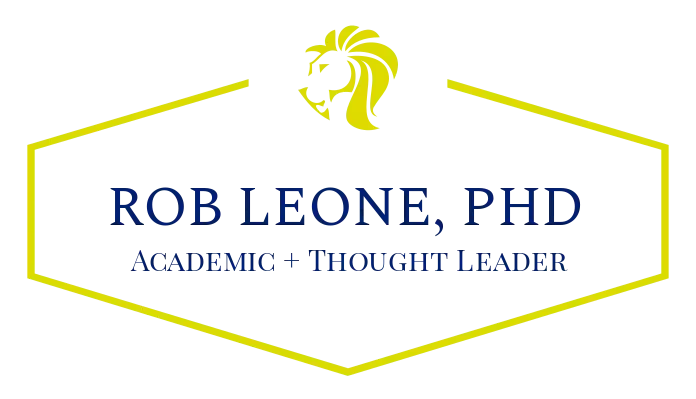The presence of ‘fake news’ is nothing new. The fact that the world is in a tizzy over President Donald Trump’s latest foray in the constant battle for the truth is quite remarkable. It’s like we’re trying to give him credit for inventing something that is as old as the human need for power and dominance.
One need not look further than former President Obama’s farewell address and President Trump’s inaugural address to see the difference. President Obama painted a picture of a thriving America using facts that speak to that prowess – record job creation, a stronger social safety net, and diplomatic breakthroughs in Cuba and Iran. And, for the millions of Americans who have seen their prosperity grow, there was much to be proud of that legacy.
Contrast Obama’s version of the truth with President Trump’s speech last week, where the new President talked about torn cities, rampant drug, crime, and gangs, porous borders, and foreign countries poaching jobs, the difference couldn’t be more stark. President Trump’s version of America was bleak.
Unsurprisingly, the main street media, who by the way have a viewership and readership that is decidedly more educated and wealthy – that is, the sort of people that have prospered under Obama’s America – were quite harsh. But to the millions of Americans who have not prospered in America, the speech couldn’t ring truer.
Both presidents spoke the ‘truth’ with facts and anecdotes that reinforce their narrative, but it is precisely that narrative that is so hotly in dispute. An election was called, and the divisions of versions of America bore out in the electorate. To the ‘other side’, the going narrative is contestable garbage, and it’s that narrative that infiltrates political discord and informs political debate. In democracies, we allow opposition to contest those ideas. We have a free press to keep a watchful eye. We set up accountability and transparency mechanisms to try and provide unbiased information to inform that debate. We encourage freedom of association to protect the right of citizens to gather, discuss, and protest if need be.
Who is right largely depends on the information as each individual sees it. President Trump’s attack on the media based on the number of people who attended the inauguration wasn’t destined to appeal to consumers of the media, but it did serve the purpose of reaffirming to the American people that the elites will not soon start to view his presidency favourably. Not at all. The President’s Twitter will keep going, and it should.
Back home, the missives exchanged by Conservative leadership candidate Kevin O’Leary and the Wynne government are an extension of the democratic feud. O’Leary got his name out there, politically speaking, by issuing a series of ‘open letters’ to political opponents, including Premier Kathleen Wynne. In those letters, O’Leary blasts Wynne for a variety of what he undoubtedly sees as measures of incompetence. On hydro, on deficits, on everything, O’Leary paints a bleak picture of Ontario. Judging by public polling figures, that narrative speaks to millions of Ontarians.
However, the new strategic direction of the Wynne government has been issuing rebuttals to O’Leary via ‘open letters’ on social media. I’m not sure O’Leary is a follower or a friend of Wynne and her cabinet, mind you, but that’s not the point. Those messages were directed at Wynne’s supporters. In these rebuttals, Wynne and her cabinet ministers focus on the narrative that the government is doing quite fine. Ontarians are working. The economy is growing. Finances are under control. Hydro rates rose to deal with competing problems and are now the focus of decline. And so on.
Is O’Leary wrong or is Wynne? The answer is that it depends on how you see things. If you are an Ontarian who struggles to pay the bills and eat, your Ontario is in disarray. Conversely, if you’re educated, seeing the onset of cheap (or free) tuition, and like reducing your carbon footprint, then hey, you’ve got nothing to complain about – other than ‘fake news’ O’Leary perhaps.
In O’Leary, the Wynne government clearly sees a vehicle to get their positive narrative out, which it can’t seem to do without a vocal provincial opponent and a federal prime minister whom the Premier happens to really support. The end game is to frame the dialogue that will inform voters’ attitudes in the year leading up to the next provincial election.
The point is that ‘fake news’ has always been with us. The people who have power will use selective information to keep wielding it. Some even call it propaganda, especially when information appears to be distorted. The opponents will use alternative information (which is now seen to be a gaffe!?!?!?) to try and seize power. Most voters actually don’t know what is true. In fact, I spend a great deal of time to try and filter past the clouded mess. Frankly, I tabled an historic contempt motion in the legislature because I felt we weren’t being told the truth, and in many respects, that did indeed became a real problem for the government.
We must be careful about everything we hear. For example, Minister Glenn Thibeault said Boston has 60% higher hydro than Ontario. However, statistics from Hydro Quebec, which looks at average rates, taxes, delivery charges, and the whole picture, puts that increase at about half of that.
Facts are funny, aren’t they? Used to counter my favoured narrative, they can also be ‘fake.’
